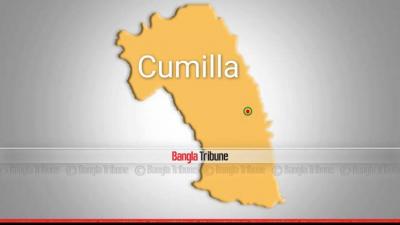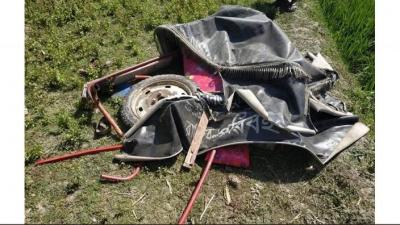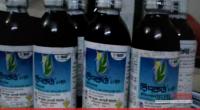 Mango, jackfruit, guava, papaya or banana gardens, like rice-jute or vegetables, are familiar in different regions of Bangladesh. But if you look at the plantations of bamboo trees in a wide variety of fields like these fruit gardens, one can start to wonder. Though, in Madaripur, locals are used to with this scenery. As bamboo yield is good in the fallen and low-yielding agricultural land of the district and as there is always a full demand, the farmers are turning to the bamboo cultivation. They also get profits from this.
Mango, jackfruit, guava, papaya or banana gardens, like rice-jute or vegetables, are familiar in different regions of Bangladesh. But if you look at the plantations of bamboo trees in a wide variety of fields like these fruit gardens, one can start to wonder. Though, in Madaripur, locals are used to with this scenery. As bamboo yield is good in the fallen and low-yielding agricultural land of the district and as there is always a full demand, the farmers are turning to the bamboo cultivation. They also get profits from this.
It has been found in the area that there are lots of naturally growing bamboo gardens in the district. Besides, people from all walks of life plant bamboo trees surrounding their residence and in the abandoned jungles. But the scene of such rows of bamboo plantations in the crop fields suddenly takes notice of the eye. Farmers of the district have built many such plantations.
Liakat Ali Bepari of Kalikapur village under Sadar Upazila has made bamboo gardens on some of the agricultural lands. He told the Bangla Tribune, ‘Sand layers fall on the land during the flood. I am cultivating bamboo on this land. Moreover, where crop productions are hampered for various reasons, there I cultivate bamboo.’ In total, Liakat Ali is Cultivating on more than 1 acres of land. Each bamboo is sold from lowest Tk70 to highest Tk250.
 Like the garden of Liakat Ali many small and large bamboo gardens are found in the agricultural and crop lands of Kalikapur, Chilarchar, Bahadurpur, Pachkhola, Bashgari, Bashkandi and in every other union under Sadar Upazila of Madaripur.
Like the garden of Liakat Ali many small and large bamboo gardens are found in the agricultural and crop lands of Kalikapur, Chilarchar, Bahadurpur, Pachkhola, Bashgari, Bashkandi and in every other union under Sadar Upazila of Madaripur.
According to the source of Agricultural Extension Department of Madaripur, bamboo is cultivated in around 1,100 hectares of land of this district. Average production is 1500 pieces per hectare and the average rate of per bamboo is Tk150. In each hectare land, bamboo is produced of Tk2.25 lakh per year. The department said as the cost of bamboo production for each hectare is Tk50, 000, the net benefit is Tk1.75 lakh per hector.
Salim Morol of Sadar district said, ‘Farjihat is just beside our village. There, bamboo is sold. Customers come to buy bamboo from Dhaka and other areas of the country. As a result Bamboo farmers are benefited from this.’
Locals said, among 60 unions under Madaripur district, Bashkandi union of Shibchar Upazila and Bashgari of Kalkini Upozila are named after bamboo (Bash).

Bamboo is sold in every village hat and market of Madaripur. And there are many fixed hats like Farjirhat where only bamboos are sold. Bamboos bought from these hats arranged in rows and are taken to various places including the capital by the river.
Environmental organizational leaders demanded government and private training and necessary assistance with an emphasis on this kind of initiatives of the farmers. Kumar Lavlu, a member of Madaripur Environment Conservation and Development Council said, ‘If the farmers are provided with necessary training and assistance, they can take forward the bamboo cultivation. They will economically benefit from this as well as it will contribute to the economy of the country.’
GMA Gafur, Deputy Director of Madaripur Agriculture Extension Department said to the Bangla Tribune, ‘Bamboo cultivation is financially benefiting. Earlier, bamboo cultivation was done only from the bamboo roots. Now bamboo cultivation is done from the bamboo branches. Farmers of Madaripur are benefited by cultivating bamboo in the less productive or less fertile lands. The agriculture department is also giving them importance. For this reason, they are provided with motivations and training of scientific methods of the bamboo plantation.’






